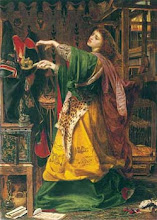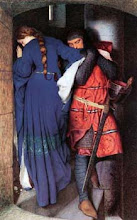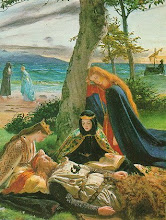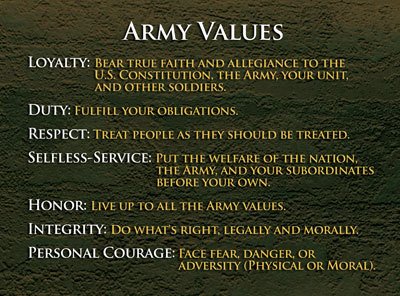
by Edileide Brito
“King Arthur was a king and he allways will be a king”
Le Morte D’Arthur, Sir Thomas Malory
The saga of King Arthur and his Knights of Round Table, which, presents itself the junction of medieval tales, gathering in only book Le Morte D'Arthur [Arthur’s Death] by Sir Thomas Malory, dating from fifteenth century, and was written around 1469-1470 and published in 1485 for the first English Printer-Press by Sir Willian Caxton (1422?-1491), and it has being the first book printed in England and it was printed posthumous the writer.
Myth and Literature
The myth and literature are interrelationed to share themselves a sort of structure of narrative, that widening the own narrative, the characteres, images and thematics.That relation is only in similarity and it isn’t the same in identity. However, the demistify of myth about the King Arthur’s idealize identity shall be accepted in plan of speech, whilst a mythical and legendery subject and nor consequently, like a metamorphosead “entity” in empiric plan, which seeks for a national identity.The formal treatment implies a less development myth occurrence, explict and supported for literacy purposes.The actions are more arbitrary, motivated in a plain way and more enigmatics inside a continous axis, making a substract of ruptures that mould them, along the time and age.That contrast should be watched and compared to exist in bible texts and in the development in gender of tale.Within the roots of myth, the oldest way in oral literature, they could be lost in pre-history, this way, any asks and answers are speculative. (Vickery, 1982, p.67)
Arthur’ s myth
However, the demistify of myth about the King Arthur’s idealize identity shall be accepted in plan of speech, whilst a mythical and legendery subject and nor consequently, like a metamorphosead “entity” in empiric plan, which seeks for a national identity.So, to considerer a real existence to King Arthur it shall be complicated, because Arthur wasn’t just a king and he just was called king during twelfth century A.D. by Geoffrey of Monmouth in his fabulous story about Historia Regum Britanniae [History of British Kings], like that, old registers in a reference to King Arthur, have identified him just for a first name and have never revealed yet a surname;In century tenth we have the transfiguration about comandant and warlike Arthur as King of England in the Welsh epic Four branches of the Mabnogion.In the Welsh tale Kilhwch and Olwen, has established a sort of transistion in the position of Arthur, mentioning it as King:
Myth and Literature
The myth and literature are interrelationed to share themselves a sort of structure of narrative, that widening the own narrative, the characteres, images and thematics.That relation is only in similarity and it isn’t the same in identity. However, the demistify of myth about the King Arthur’s idealize identity shall be accepted in plan of speech, whilst a mythical and legendery subject and nor consequently, like a metamorphosead “entity” in empiric plan, which seeks for a national identity.The formal treatment implies a less development myth occurrence, explict and supported for literacy purposes.The actions are more arbitrary, motivated in a plain way and more enigmatics inside a continous axis, making a substract of ruptures that mould them, along the time and age.That contrast should be watched and compared to exist in bible texts and in the development in gender of tale.Within the roots of myth, the oldest way in oral literature, they could be lost in pre-history, this way, any asks and answers are speculative. (Vickery, 1982, p.67)
Arthur’ s myth
However, the demistify of myth about the King Arthur’s idealize identity shall be accepted in plan of speech, whilst a mythical and legendery subject and nor consequently, like a metamorphosead “entity” in empiric plan, which seeks for a national identity.So, to considerer a real existence to King Arthur it shall be complicated, because Arthur wasn’t just a king and he just was called king during twelfth century A.D. by Geoffrey of Monmouth in his fabulous story about Historia Regum Britanniae [History of British Kings], like that, old registers in a reference to King Arthur, have identified him just for a first name and have never revealed yet a surname;In century tenth we have the transfiguration about comandant and warlike Arthur as King of England in the Welsh epic Four branches of the Mabnogion.In the Welsh tale Kilhwch and Olwen, has established a sort of transistion in the position of Arthur, mentioning it as King:
Horses shall I have, and chivalry; and my lord and kinsman Arthur will obtain for me all these things. And I shall gain thy daughter, and thou shalt lose thy life”. (Guest, p.82, 1997)
In the The dream of Rhonabwy Arthur is called as Emperor:
In the The dream of Rhonabwy Arthur is called as Emperor:
I was one of the messengers between Arthur and Medrawd his nephew, at the battle of Camlan; and I was then a reckless youth, and through my desire for battle, I kindled strife between them, and stirred up wrath, when I was sent by Arthur the Emperor to reason with Medrawd, and to show him, that he was his foster-father and his uncle, and to seek for peace, lest the sons of the Kings of the Island of Britain, and of the nobles, should be slain. (Guest, p.96, 1997)
Has seen that in previous writtings about Arthur, where he was not mentioned as a king, but he has pointed as a powerful warlike celtic leader.The myth is one speaks:... but no any speaks... however, are necessary special conditions for that language transoforms itself into myth;... the myth is a communication system, a message. Here it is why it could not be object, a concept or an idea: it is a significative way, a form… since the myth is one speaks, everything can constitute a myth, since that he is susceptible to be judged by a speech. The myth is not defined for the object of its message, but for the way as it pronounces it: the myth has formal limits, however not substantial. (Barthes,p. 199, 2006)
Has seen that in previous writtings about Arthur, where he was not mentioned as a king, but he has pointed as a powerful warlike celtic leader.The myth is one speaks:... but no any speaks... however, are necessary special conditions for that language transoforms itself into myth;... the myth is a communication system, a message. Here it is why it could not be object, a concept or an idea: it is a significative way, a form… since the myth is one speaks, everything can constitute a myth, since that he is susceptible to be judged by a speech. The myth is not defined for the object of its message, but for the way as it pronounces it: the myth has formal limits, however not substantial. (Barthes,p. 199, 2006)


































0 comments:
Post a Comment